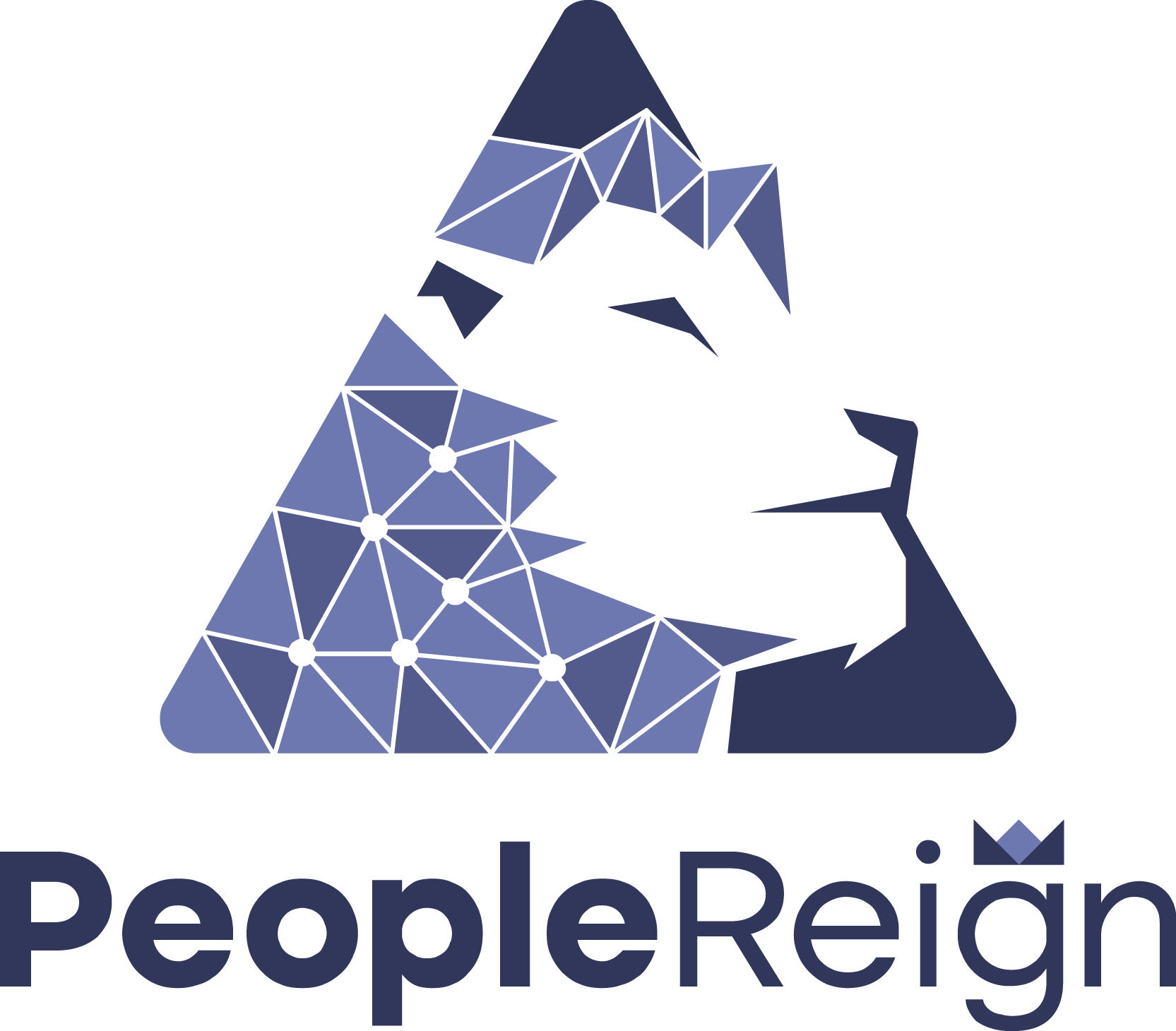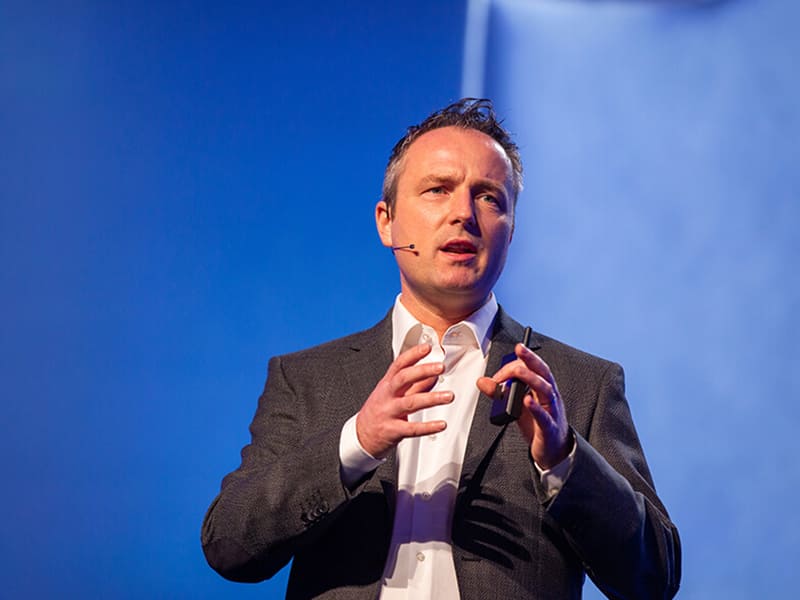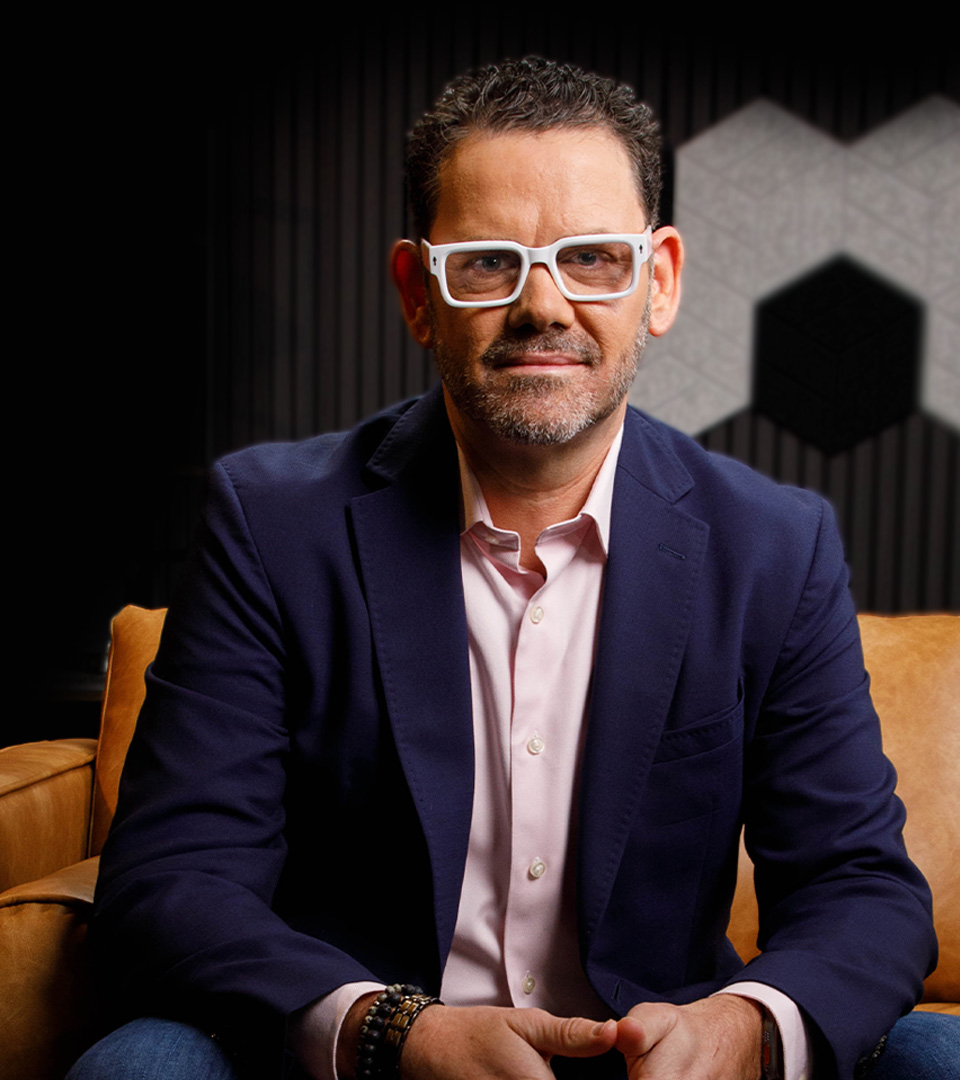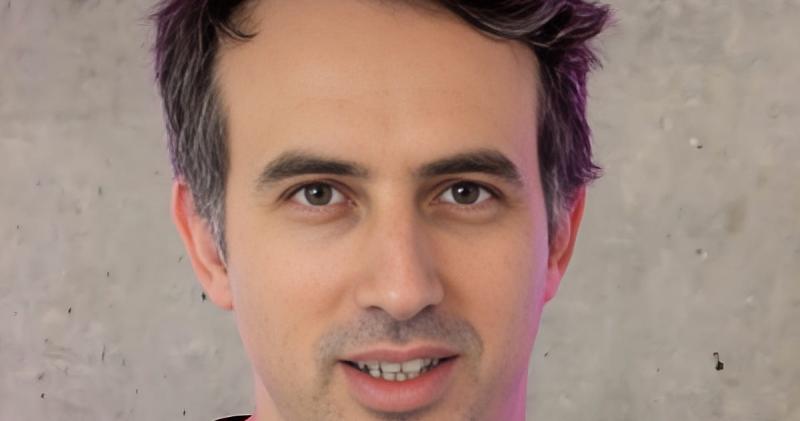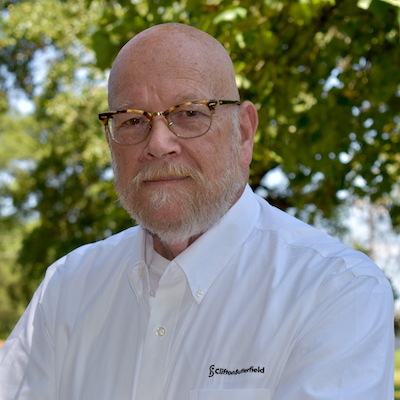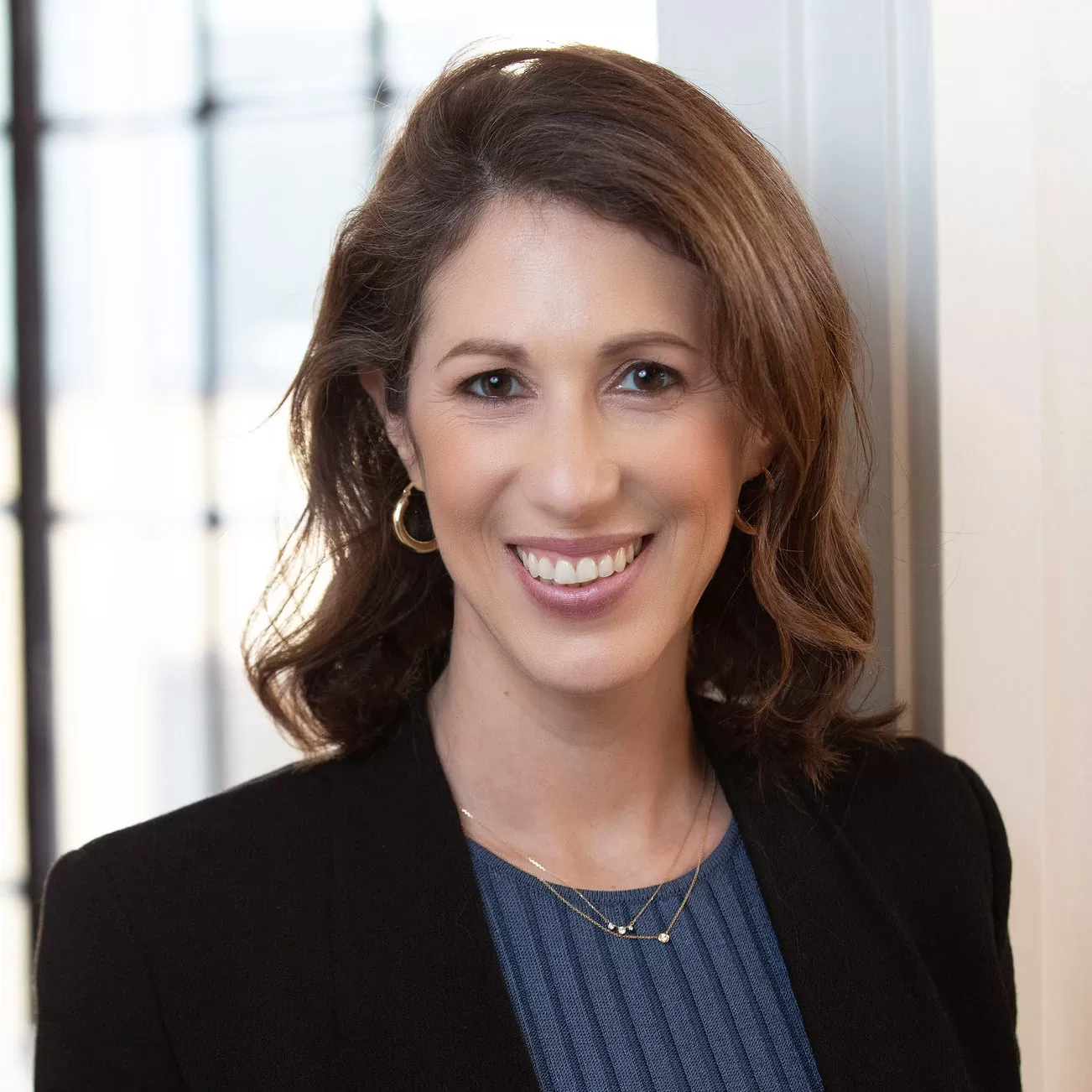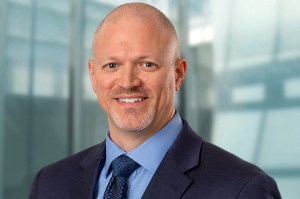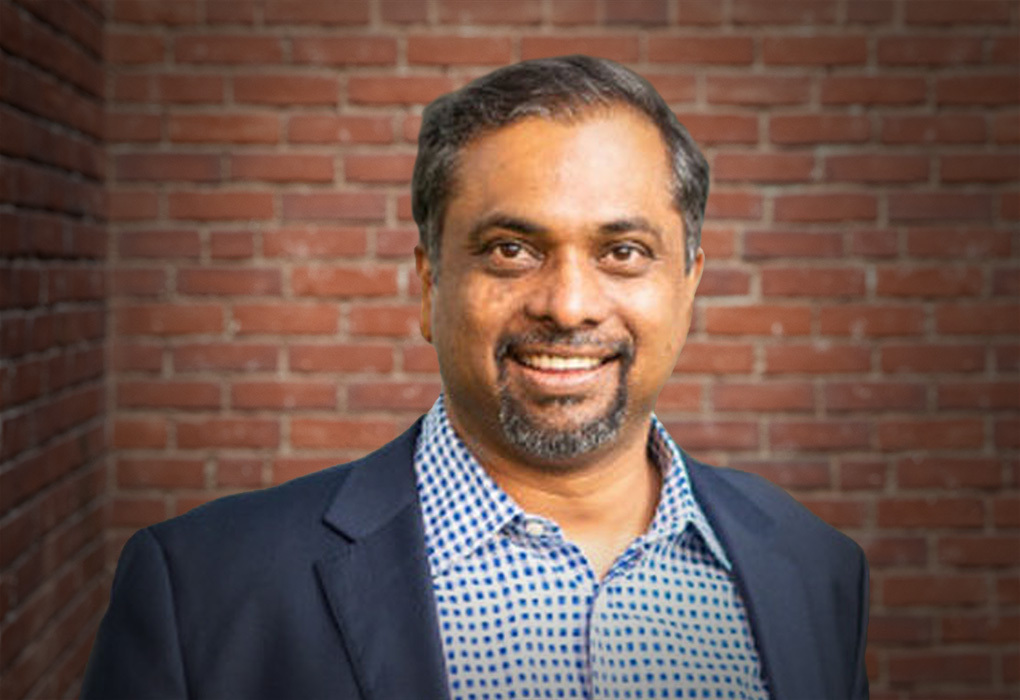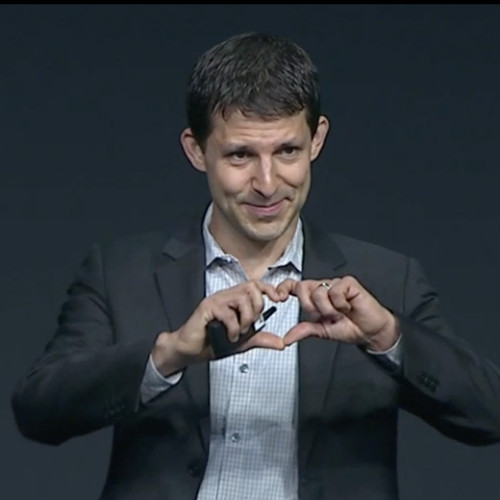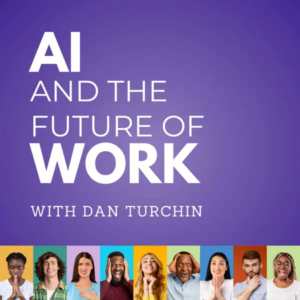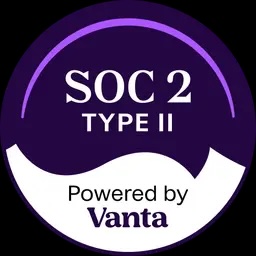AI and the Future of Work
-

Episode Number : 297
Nick Mehta is the legendary CEO of Gainsight, a leading company in the customer success space, where he’s
Show moreShow lessNick Mehta is the legendary CEO of Gainsight, a leading company in the customer success space, where he’s played a pivotal role for over 11 years, growing it into a powerhouse with over 20,000 customers and $100 million in ARR. Before Gainsight, Nick was a serial entrepreneur, having led LiveOffice until its acquisition by Symantec, and co-founded Chipshot in the ’90s. He holds a bachelor’s degree in Biochemistry and a master’s in Computer Science from Harvard. Beyond his professional achievements, Nick is a multi-talented individual, known for his popular blog “Metaphysical Musings,” where he shares his love for Taylor Swift with nearly 27,000 subscribers. He’s also a rapper, an OG shoe dog, and a YouTube celebrity with over 50 parody videos to his name.
In this conversation, we discuss:
- The impact of AI on job security and how it will change the future of work, especially in the context of SaaS and customer success.
- The concept of “human-first AI” and how companies can leverage AI to remove grunt work while enhancing the human elements of customer interactions.
- The importance of building strong company culture, focusing on authenticity, transparency, and empathy as key drivers of employee engagement and satisfaction.
- The balance between the excitement and anxiety surrounding AI adoption, highlighting both the potential benefits and the challenges it poses to knowledge workers.
- Insights into how Gainsight has evolved over the years, with a particular emphasis on customer lifetime value and the importance of proactive customer success management.
- The role of leadership in maintaining company values, the importance of vulnerability and openness, and the unique ways Gainsight fosters a sense of community among its employees.
Resource
-

Episode Number : 296
Armen Berjikli is a serial entrepreneur and the recently appointed CTO at BetterUp, a human transformation platform founded
Show moreShow lessArmen Berjikli is a serial entrepreneur and the recently appointed CTO at BetterUp, a human transformation platform founded in 2013 that employs over 3,000 coaches to help individuals achieve greater clarity, purpose, and passion through expert guidance. Before joining BetterUp, Armen co-founded Motive, which was later acquired by BetterUp, and Kenjoya, acquired by Ultimate Software. He holds a bachelor’s degree in Computer Science and a master’s degree in Management Science and Engineering from Stanford University.
In this conversation, we discuss:
- The evolution of technology and its impact on the workplace over the past two decades.
- How Armen’s early research at Stanford with professors Clifford Nass and Byron Reeves influenced his career.
- The development of Experience Project and its role in connecting people through shared experiences and emotions.
- The journey of Armen’s companies, Kenjoya and Motive, and their contributions to understanding and improving employee experiences.
- Armen’s insights on integrating AI with human interaction to enhance emotional intelligence in technology.
- The unique approach BetterUp takes in combining coaching, technology, and research to drive human transformation and organizational success.
Resource
Subscribe to the AI and the Future of Work newsletter -

Episode Number : 295
Thomas Otter joined Acadian Ventures in March 2022 as a General Partner. Prior to Acadian, he advised companies
Show moreShow lessThomas Otter joined Acadian Ventures in March 2022 as a General Partner. Prior to Acadian, he advised companies such as Workday, Ultimate Software, Personio, and Unit 4, and collaborated with private equity and growth equity firms like Warburg Pincus, Scottish Equity Partners, PSG, and Goldman Sachs on M&A, strategy, negotiations, and diligence. He previously led the product management organization at SAP SuccessFactors, scaling it to over a billion dollars in annual recurring revenue, and served as a Research Vice President at Gartner Group, leading HR tech research. Thomas holds a Doctorate from the Karlsruhe Institute of Technology, and the Strategy and Innovation Diploma from Oxford. He is a Fellow of the British Computer Society. A regular guest lecturer at various universities, Thomas grew up in South Africa and now resides in Heidelberg, Germany. He is also a collector of vinyl records and a lover of great music.
In this conversation, we discuss:
- How a chance encounter led to a 30-year career in HR technology.
- The evolution of HR technology from the mainframe era to modern cloud-based systems.
- The intersection of ethics, compliance, and technology within HR.
- The strategic importance of HR in today’s business landscape and its impact on the employee experience.
- The role of technology in automating administrative tasks to enhance employee satisfaction.
- Historical milestones in HR tech, including the first business application of a computer for payroll.
Resource
An episode you might like about using AI to get ahead in your career
-

Episode Number : 294
Bernard Marr is a world-renowned futurist, influencer, and thought leader in the fields of business and technology. With
Show moreShow lessBernard Marr is a world-renowned futurist, influencer, and thought leader in the fields of business and technology. With a passion for leveraging technology for the good of humanity, Bernard is a bestselling author of over 20 books, writes a regular column for Forbes, and advises and coaches many of the world’s best-known organizations. Boasting a combined following of 4 million people across social media channels and newsletters, Bernard was ranked by LinkedIn as one of the top five business influencers globally. His latest books include “Future Skills,” “The Future Internet: Business Trends and Practice,” and “Generative AI in Practice.”
In this conversation, we discuss:
- Bernard’s journey into the AI and technology space, from his academic background to his consulting and writing career.
- The evolution of the AI landscape, from analytics and big data to modern AI applications and trends.
- How Bernard simplifies complex technical topics for a mainstream audience in his books and writings.
- Insights from Bernard’s latest book, “Generative AI in Practice,” and what readers can expect to learn from it.
- The role of AI in business decision-making and strategy, based on Bernard’s extensive consulting experience.
- The ethical considerations and societal impacts of AI advancements, and how they shape the future of work.
Resource
An episode you might like about the future of audio engineering
-

Episode Number : 293
Chris Dyer is a globally recognized company culture and future of work expert, delivering keynotes for over 15
Show moreShow lessChris Dyer is a globally recognized company culture and future of work expert, delivering keynotes for over 15 years to audiences worldwide. As a CEO managing thousands, his companies consistently earn accolades as best places to work and have been recognized five times by Inc. Magazine as some of the fastest-growing companies. Chris is ranked as Inc. Magazine’s number one leadership speaker on culture, has published three best-selling books, and is named number five on the leadership power list. He is also a top 40 change management guru, a top 50 global thought leader, and the host of a top 50 leadership podcast. Beyond his professional achievements, Chris is an avid hiker, musician, and world traveler.
In this episode, we discuss:
- The concept of being an “accidental everything” and how curiosity and the willingness to say yes can lead to unexpected opportunities.
- We explore how Chris transitioned from speaking to writing, despite initial doubts and external skepticism.
- We delve into the power of a strong support system, including employees, mentors, and friends, in achieving success.
- We examine the varying perceptions employees have about AI in the workplace, from ignorance to apprehension to enthusiasm.
- We discuss the rapid pace of technological innovation and its impact on both employees and organizations.
- We highlight the importance of helping employees understand and adapt to technological advancements to enhance their value and mitigate job displacement risks.
Resource
An episode you might like about the future of audio engineering
-

Episode Number : 292
Peter Voss is the visionary founder and CEO of Aigo.ai, a pioneering company at the forefront of conversational
Show moreShow lessPeter Voss is the visionary founder and CEO of Aigo.ai, a pioneering company at the forefront of conversational AI and natural language processing. Over the past 15 years, Peter and his team have perfected a highly intelligent, hyper-personalized chatbot designed for enterprise customers. In 2009, Peter founded SmartAction.ai, which developed the first AI-based contact center technology. Beyond his entrepreneurial endeavors, Peter is an engineer, inventor, and AI pioneer who writes and presents on philosophical topics such as rational ethics, free will, and artificial minds. He is also deeply involved in futurism and radical life extension.
In this episode, we discuss:
- Peter Voss’s Journey: From an electronics engineer to creating a successful software company, and his deep dive into the nature of intelligence and AI.
- Defining AGI: What Artificial General Intelligence (AGI) means to Peter, and how we will recognize its achievement.
- Cognitive Skills Gap: The differences between current AI technologies like large language models (LLMs) and true cognitive skills required for AGI.
- Path to AGI: The limitations of deep learning and LLMs, and why cognitive AI is the necessary path towards achieving AGI.
- Human Interaction and Intelligence: The importance of real-time learning, metacognition, and minimal sensory input in developing AGI.
- Ethics and Responsibility in AI: The philosophical and practical considerations of developing AGI, including the ethical implications and societal benefits.
Resource
-

Episode Number : 291
Emil Winebrand, CEO and co-founder of insoundz, is a trailblazer in the AI and audio technology industry. With
Show moreShow lessEmil Winebrand, CEO and co-founder of insoundz, is a trailblazer in the AI and audio technology industry. With a master’s degree in engineering from Tel Aviv University, Emil’s career began deeply immersed in the tech world, taking a significant turn after a decade of service in the intelligence technology unit of the IDF (Israeli Defense Forces), where he developed a keen interest in AI for audio enhancement. Under Emil’s leadership, insoundz has emerged as a force in generative AI for audio technology, revolutionizing how we experience sound. His passion led to the development of the insoundz flagship product, Revive, which transforms any recording into studio-quality sound. Emil is also recognized for leading award-winning engineering teams across various domains, from electro-optics to algorithm development.
In this conversation, we discuss:
- Emil’s early fascination with AI and neural networks, beginning at the age of 13.
- His journey from studying electrical engineering to working in the IDF, where he encountered significant audio issues that sparked his passion for improving audio quality.
- The creation and capabilities of InSounds’ product, Revive, which enhances audio by regenerating it with AI to achieve studio-quality sound.
- The ethical considerations and challenges of using AI in audio engineering, including the potential for bias and the implementation of watermarking to prevent misuse.
- The unique tech ecosystem in Tel Aviv and how the culture and education in Israel, including experiences in the IDF, contribute to the success of tech entrepreneurs.
- Emil’s transition from CTO to CEO and the personal growth and challenges he faced in adapting to a leadership role focused on storytelling and vision rather than just technical details.
Resource
An episode you might like about leveraging AI to create more time in your day
-

Episode Number : 290
Adityo Prakash is a serial entrepreneur, high-tech CEO, amateur photographer, and author who transitioned from academia to revolutionize
Show moreShow lessAdityo Prakash is a serial entrepreneur, high-tech CEO, amateur photographer, and author who transitioned from academia to revolutionize video streaming, and is now transforming drug discovery and commercialization. As the founder of Version, Adityo employs deep quantum modeling and AI to expedite the identification and development of innovative pharmaceuticals, potentially reshaping our approach to aging and healthcare. With degrees in math and physics from Caltech and over 40 patents to his name, Adityo is at the forefront of technological advancements in the medical field.
In this conversation, we discuss:
- How Version uses deep quantum modeling and AI to revolutionize drug discovery and development, aiming to change the standard of care for various diseases.
- Adityo’s journey from Caltech, where he studied math and physics, to founding Version and securing over 40 patents.
- The challenges and opportunities at the intersection of high tech and biotech, and how these fields are converging to create new platform companies.
- The limitations of traditional trial-and-error drug discovery methods and how Version’s approach offers a more systematic, atom-by-atom design of new drugs.
- The potential for AI and advanced modeling techniques to address complex health issues like aging, by treating it as a disease with identifiable therapeutic targets.
- The future of drug development, regulatory challenges, and how the integration of AI and physics could transform the pharmaceutical industry over the next decade.
Resources
An episode you might like about which AI businesses are getting investor dollars
-

Episode Number : 289
Tamara Steffens is a seasoned tech executive with a remarkable track record in scaling teams, infrastructures, and products.
Show moreShow lessTamara Steffens is a seasoned tech executive with a remarkable track record in scaling teams, infrastructures, and products. She has contributed significantly to early mobile and SaaS pioneers, including Boingo, Software.com, Fusion One, and Color. Tamara has held executive roles at Microsoft and OpenWave, leading large teams and driving innovation. Her tech career began at Sun Microsystems and Silicon Graphics, where she architected partnerships that defined entire industries. Tamara holds a BS in finance from Michigan State University and is actively involved in shaping the future of business and innovation as a board member at the Broad Business School and a member of the National Advisory Council on Innovation and Entrepreneurship at the U.S. Department of Commerce. She currently works as an MD at Thomson Reuters Ventures; we are thrilled to welcome Tamara to AI and the Future of Work.
In this episode, we discuss:
- Corporate Venture Capital Insights: Tamara shares her journey from working at tech companies like Sun Microsystems and Silicon Graphics to leading Thomson Reuters’ venture fund. She explains how her extensive go-to-market experience shapes her investment strategy.
- Investment Strategies in AI: We explore how Thomson Reuters’ corporate venture arm approaches AI investments, emphasizing the importance of product-market fit, revenue generation, and strategic alignment with the company’s broader goals.
- Differences Between Corporate and Traditional VCs: Tamara outlines the unique considerations of corporate VCs, such as potential go-to-market synergies and strategic benefits, compared to traditional VCs which primarily focus on financial returns.
- Case Studies of AI Investments: We delve into specific investments, like WiseDocs and CentML, highlighting the processes, investment theses, and strategic benefits these companies bring to Thomson Reuters and their respective industries.
- The Impact of AI on the Legal Industry: Tamara discusses how AI is transforming the legal sector, enhancing efficiency, and changing the nature of legal work, particularly for junior lawyers and paralegals.
- Responsible AI and Data Governance: We talk about the importance of responsible AI, data privacy, and governance in AI investments. Tamara explains Thomson Reuters’ approach to ensuring ethical AI practices and compliance with legal standards.
Resource
An episode you might like about breaking into venture capital
-

Episode Number : 288
Roy Atkinson is a renowned thought leader in IT service management and customer service. A prolific writer, speaker,
Show moreShow lessRoy Atkinson is a renowned thought leader in IT service management and customer service. A prolific writer, speaker, analyst, and podcaster, Roy’s expertise has been featured in major tech publications. CIO Insight described him as a model for the future digital leader, and Nextiva named him one of the top 50 customer service experts of the decade. From 2010 to 2020, Roy’s extensive career included roles as an IT executive at the Jackson Laboratory, an analyst at Informatech, and CEO and principal advisor at Clifton Butterfield. Roy is also a polymath, with a broad range of knowledge across various subjects.
In this episode, you will learn:
- Roy’s Multifaceted Journey: Discover how Roy’s diverse background as a polymath, polyglot, and musician influenced his career in customer service and IT.
- Language Learning and Cultural Insights: Gain insights into Roy’s extensive language studies, including Spanish, French, Latin, German, Italian, and Serbian, and how this passion has enriched his personal and professional life.
- Customer Service Roots: Understand how early work experiences, from delivering newspapers to working in a busy supermarket and a bank, shaped Roy’s interest and expertise in customer service and customer experience.
- Music Industry Adventures: Hear fascinating stories about Roy’s 20-year career as a professional musician, his achievements, and notable collaborations with renowned artists like John Mayall, Todd Rundgren, and Don McLean.
- Transition to IT and Technology: Learn about Roy’s transition from music to IT, his role in managing IT systems, and his involvement with HDI, highlighting the parallels between the evolution of digital technology in music and business.
- Evolution of Employee Experience: Explore the changes in the employee experience over the past two decades, including the shift from a technology-centric approach to a focus on user experience, the impact of consumerization, and the rise of AI in IT management.
Resources
An episode you might like about preventing AI from ruining us
-

Episode Number : 273
Kendall Clark is the co-founder and CEO of Stardog, a leading enterprise knowledge graph platform with customers like
Show moreShow lessKendall Clark is the co-founder and CEO of Stardog, a leading enterprise knowledge graph platform with customers like Morgan Stanley, Raytheon, Bosch, and NASA. He founded the company in 2016 with a vision of making data access more meaningful. Self-taught in coding during his 20s, Kendall is on a mission to help people experience “aha” moments with data more frequently. Stardog recently launched VoiceBox, a conversational data platform enabling knowledge workers to interact with enterprise data using natural language.
In this episode, you will learn
- Kendall Clark’s journey from AI research to founding Stardog.
- The unique intersection of data management and knowledge management in the enterprise.
- The evolution and impact of AI on data management practices.
- The launch and significance of Stardog’s new conversational data platform, VoiceBox.
- Real-world applications of knowledge graphs, particularly with NASA.
- The importance of democratizing data access for non-technical knowledge workers.
- Much more
-

Episode Number : 272
Allison has spent over a decade pioneering the of future of work as an employee, investor, and author.
Show moreShow lessAllison has spent over a decade pioneering the of future of work as an employee, investor, and author. Her book, Breaking into Venture, offers a human perspective on succeeding in venture capital. As a General Partner at Semper Virens, she invests in technology transforming workforce, healthcare, and financial services. Allison contributes to Forbes, lectures at Columbia Business School and UC Berkeley Haas, and has a rich background including roles at Goldman Sachs, General Assembly, Fresco Capital, and Trinity Ventures. She holds a BA in Economics with honors and a minor in Film Studies from Harvard.
In this episode, you will learn how
- Allison grew up in the Midwest, witnessing her parents’ jobs being disrupted by technology, which influenced her dedication to understanding the future of work.
- After the financial crisis and seeing algorithmic job replacement at Goldman Sachs, she decided to focus her career on technology and innovation.
- Working at General Assembly introduced her to venture capital, where she saw the influence VCs have on startups, leading her to co-found Fresco Capital and later join Semper Virens.
- She emphasizes the importance of creating a unique value add in venture capital, highlighting the significance of building and activating a powerful network.
- Allison believes AI will augment jobs by taking over specific tasks rather than replacing entire jobs, advocating for a responsible AI implementation process to mitigate risks.
- Keys to picking a career that won’t be automated by a bot.
Resources
An episode you might like about limiting AI’s adverse effects
-

Episode Number : 271
Jonathan Siddharth is the visionary leader behind Turing, the unicorn AI juggernaut that powers technical recruiting for more
Show moreShow lessJonathan Siddharth is the visionary leader behind Turing, the unicorn AI juggernaut that powers technical recruiting for more than 900 companies, including Pepsi, Dell, Disney, Red Bull, and many others.
Turing is the world’s most successful AI-powered tech services company. Turing has reimagined tech services from the ground up with AI by providing enterprises with AI-vetted and matched talent, AI-accelerated application delivery, and access to AI transformation experts who built the technologies behind the most successful Silicon Valley companies.
Founded in 2018, the company has experienced tremendous growth with over three million global developers on its talent network and 1,000+ clients. Turing has received numerous awards, including Forbes’s “One of America’s Best Startup Employers,” #1 on The Information’s annual list of “Most Promising B2B Companies,” and Fast Company’s annual list of the “World’s Most Innovative Companies.” Turing’s most recent private fundraising round was oversubscribed and valued the company at $1.1 billion. Subsequent oversubscribed SAFEs were completed on a $4 billion valuation cap.
In this episode, you will:
- Uncover what it takes to build a big business.
- Discover how Jonathan’s early fascination with AI led to groundbreaking projects and innovations that transformed his career and the tech industry.
- Learn about Jonathan’s journey from AI researcher to successful entrepreneur, founding companies that achieved significant exits and rapid growth.
- Gain insights into the strategies for building a high-performance organization, including market analysis, team development, and continuous self-improvement.
- Understand how Turing leverages AI to disrupt the tech services market, offering superior talent sourcing and project delivery compared to traditional firms.
- Hear actionable advice on fostering a sense of urgency, prioritizing customer needs, and creating a culture of rigorous decision-making to drive business success.
- And much more…
Resource
An episode you might like about limiting AI’s adverse effects
-

Episode Number : 270
Florin Rotar is the pioneering Chief AI Officer known for leading Avanade’s AI strategy. Avanade is a joint
Show moreShow lessFlorin Rotar is the pioneering Chief AI Officer known for leading Avanade’s AI strategy. Avanade is a joint venture between Accenture and Microsoft with 50,000 employees worldwide, established in 2000 to drive innovation on the Microsoft platform.
Previously serving as Avanade’s CTO, Florin has played a pivotal role in shaping the organization’s AI vision and strategy since his early days as a consultant. A seasoned speaker and thought leader in AI, he passionately advocates for AI’s potential to empower humanity.
Florin’s global outlook stems from his experience living in 10 countries across three continents. He frequently shares his insights on AI through blogging, offering a valuable resource on AI-related topics. His commitment to leveraging AI for positive impact is evident, as echoed by my own encounter with him during a panel discussion last year.
In this episode, we discuss
- How Florin became Chief AI Officer and why it’s an important role
- How to deploy more responsible AI practices
- The role importance of accountability in tech and how to ensure it’s baked into the creation of new products
- 2025 predictions about the evolution of AI
- What it will take for people to start trusting and collaborating with AI rather than seeing it as competition
- Much more
Resources
Florin’s LinkedIn
Fun fact article
Bruce Feiler discusses the future of relationships on AI and the Future of Work -

Episode Number : 269
Naomi Ionita and Derek Xiao are investors at Menlo Ventures, one of Silicon Valley’s most successful and storied
Show moreShow lessNaomi Ionita and Derek Xiao are investors at Menlo Ventures, one of Silicon Valley’s most successful and storied venture capital funds. Menlo has backed over 80 public companies, manages over $5 billion in assets, and has been a pillar of the VC community for an astonishing 47 years. You likely know many of Menlo’s recent high-profile investments in companies like Anthropic, Chime, and Harness and historical investments such as 3Com, Hotmail, and Roku. Naomi and Derek recently led the firm’s publication of a 3,500-word report chronicling the state of generative AI in the enterprise.
In this episode, we discuss
- How they decide what to invest in
- The tripling of budgets for AI projects by 2025, according to a report from ISG and Glean
- Enterprise leaders face challenges in proving ROI and building trust in AI solutions.
- The top use cases for AI investment include customer service and enterprise search
- Menlo Ventures’ perspective on the current state of VC and the opportunities in AI investing.
- Insights from Menlo Ventures’ report on generative AI in the enterprise, including barriers to adoption and the potential for transformation
- The broader societal impacts and considerations of AI adoption in business and technology.
Resources
Ashu Garg from Foundation Capital on AI and the Future of Work
-

Episode Number : 268
Steve Truitt is an award-winning science fiction author, actor, producer, and musician. He received the prestigious Golden Eagle
Show moreShow lessSteve Truitt is an award-winning science fiction author, actor, producer, and musician. He received the prestigious Golden Eagle Award for his documentary series on Discovery. Steve’s a space enthusiast and NASA history buff. He holds the unique record of having met five moonwalkers. Beyond his creative endeavors, Steve is also a coach and motivational speaker, recognized for his impactful work with the Best Motivational Book of the Year award for “Stop Waiting for Permission”. Steve brings a wealth of experience and insight to discussions on AI and the future of work.
In this conversation, we discuss
- How Steve got started in media and entertainment before branching out to other industries
- Industries being most impacted by AI
- The tricky ethics of AI and how to harness it as a tool that does more good than harm
- Why humanity is so fickle and prone to conflict
- How leaders can stop the spread of misinformation with AI and what prevents them from doing so
- Much more
-

Episode Number : 267
Chris Herringshaw is the Chief Technology Officer at Janus Henderson Investors, overseeing all technology aspects and serving on
Show moreShow lessChris Herringshaw is the Chief Technology Officer at Janus Henderson Investors, overseeing all technology aspects and serving on the Executive Committee. With over 15 years at Citadel Investment Group, he led Global Infrastructure Technology as Managing Director. Chris founded Quova, now part of NuStar, and held roles including Vice President of Engineering and CTO. He holds a BS in computer systems engineering from the University of Michigan, and actively contributes to shaping technology’s future through advisory roles and industry forums.
In this conversation, we discuss:
- Venturing from entrepreneur to working for an established company.
- Chris Herringshaw’s background in technology, including his experience at Janus Henderson Investors and as a CTO at venture-backed startups.
- How Fin-Tech companies leverage the power of AI while mitigating risks associated with its unpredictable nature .
- Why human decision making still trumps AI and algorithmic based trading decisions in certain contexts.
- Predictions on where AI is headed in the next 12 months.
- The role of AI governance in ensuring the responsible and effective use of artificial intelligence.
Resource
Previous episode about an AI app platform that’s growing faster than OpenAI
-

Episode Number : 266
Dmitry Shapiro is a serial entrepreneur who most recently founded and is the CEO of YouAi and the
Show moreShow lessDmitry Shapiro is a serial entrepreneur who most recently founded and is the CEO of YouAi and the popular AI app-builder MindStudio. He has a bold vision to help you index your mind which we unpack in today’s conversation. Previously, Dmitry founded and led GoMeta and created the video sharing site Veoh in 2005 which launched a few months after YouTube. Dmitry served as the CTO at MySpace before moving on to Google where was a Group Product Manager working on social graph, identity, and content discovery. Dmitry received his BS in EE from Georgia Tech.
In this conversation, we discuss:
- The New York Times versus OpenAI and Microsoft copyright lawsuit and its implications for AI.
- The challenges and stakes for publishers when facing AI applications using copyrighted material.
- Dmitry Shapiro’s entrepreneurial journey and the vision behind MindStudio.
- The impact of generative AI on computing and its potential for revolutionizing work and home environments.
- Legal and ethical considerations surrounding AI, copyright, and fair use.
- The intersection of technology, venture capital, and innovation in shaping the future of AI applications.
-

Episode Number : 265
As the Chief Product Officer at Alteryx, Suresh leads the product, engineering, design, and development teams that deliver
Show moreShow lessAs the Chief Product Officer at Alteryx, Suresh leads the product, engineering, design, and development teams that deliver innovative and scalable solutions for data science and analytics. He is also responsible for product pricing, packaging, and PLG strategies. Over the past 3 years, Alteryx has transformed into an analytics platform with market-leading end-to-end analytics solutions, covering the entire gamut of users from analysts to data engineers, developers, and data scientists.
With over 20 years of experience in the SaaS industry, Suresh has a proven track record of driving growth, customer satisfaction, and market leadership for cloud-based platforms and products.
In this conversation, we discuss:
- The ongoing debate between AI guardrails and user autonomy, referencing Mark Gamine’s “spicy mayo problem” as a case study.
- Suresh Vittal’s background, journey through analytics and AI, and his role as Chief Product Officer at Alteryx.
- Alteryx’s mission of “analytics for all” and their focus on empowering users across technical and non-technical roles in data analytics.
- The integration of generative AI features into Alteryx’s platform to simplify complex workflows and enhance collaboration among data professionals.
- Insights into AI-first data management strategies and the evolving landscape of AI-driven tools in the future of work.
- The importance of governance and transparency in AI-powered analytics, ensuring clarity and understanding across complex data workflows for improved decision-making.
Additional resources:
-

Episode Number : 264
Ben Kus is the chief technology officer at Box, where he’s responsible for developing Box’s technology vision and
Show moreShow lessBen Kus is the chief technology officer at Box, where he’s responsible for developing Box’s technology vision and strategy. Previously, Ben was the VP of product management at Box. Before joining Box, he was the co founder and CTO of Subspace, an enterprise security solution that was acquired by Box.
Ben’s held various leadership positions, including chief architect for IBM and senior director of technology for BigFix.
What we discuss:
- The role of generative AI in enhancing productivity and unlocking new use cases within enterprises, focusing on content management.
- Ben shares insights into Box’s innovative culture and compares it to other companies like IBM, highlighting the company’s approach to technology and innovation.
- The discussion touches on responsible AI use, regulatory considerations, and Box’s commitment to transparency and compliance.
- Ben addresses concerns about AI’s impact on jobs, emphasizing AI’s role in augmenting productivity rather than replacing human jobs.
- Future trends in AI, including personalized AI assistance and potential advancements in AI capabilities, are explored.
- The conversation ends with a fun anecdote about Box’s CEO, Aaron Levy, known for his magic tricks and the company’s unique culture of bringing your own self to work.
Additional resources
